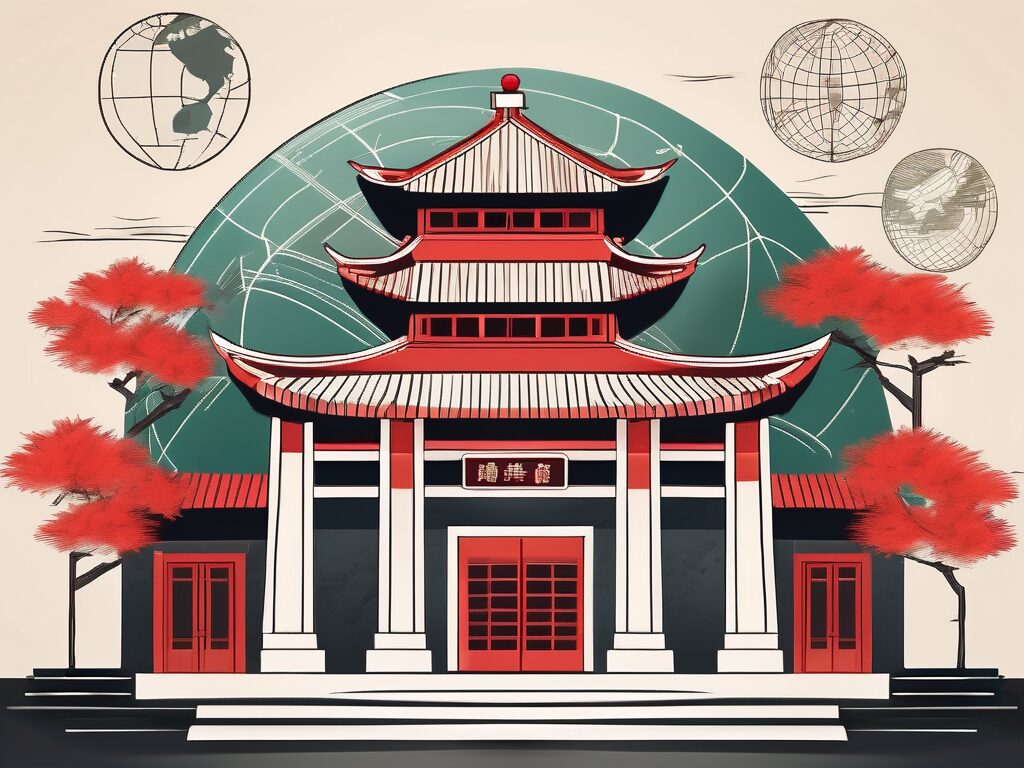Venturing overseas to teach in a foreign land can be an exciting and rewarding experience. With a Master’s in Education, you’re already a step ahead, equipped with the knowledge and skills to make a significant impact in the classroom. China, with its rich history and diverse culture, offers a unique opportunity for educators. However, before you pack your bags, there are three key points you should consider.
1. Understanding the Education System in China
The Structure of the Education System
The Chinese education system is quite different from what you might be accustomed to in the West. It is a state-run system, divided into three levels: primary school, middle school, and university. Primary and middle schools are compulsory for all children, while university education is based on competitive entrance exams.
As an educator with a Master’s degree, you would most likely be teaching at the university level. However, opportunities also exist in private international schools that cater to expatriate children and Chinese students seeking a Western-style education.
The Teaching Style
Teaching styles in China are traditionally more formal and teacher-centred compared to Western countries. Teachers are highly respected, and students are expected to listen and learn rather than actively participate. However, with the influence of Western education, this is gradually changing, especially in international schools and universities.
With your Master’s in Education, you can bring a fresh perspective to the classroom, introducing more interactive and student-centred teaching methods. This could be a rewarding experience, as you help shape the future of education in China.
2. Cultural Differences and Language Barriers
Understanding Cultural Nuances
China is a country with a rich and ancient culture, and understanding these cultural nuances can greatly enhance your teaching experience. For instance, the concept of ‘face’, or maintaining respect and dignity, is crucial in Chinese society. As a teacher, you should be aware of this and ensure your interactions with students, parents, and colleagues are respectful and considerate.
Furthermore, Chinese students may be more reserved and less likely to ask questions or challenge the teacher’s authority. This is not a sign of disinterest, but rather a cultural norm. Patience and understanding are key in these situations.
Overcoming Language Barriers
While English is taught in schools, not everyone in China speaks it fluently. This can pose a challenge, especially outside the classroom. However, learning a few basic phrases in Mandarin can go a long way in helping you navigate daily life. There are numerous language learning apps and resources available to help you get started.
In the classroom, you may need to adjust your teaching style to accommodate students’ varying levels of English proficiency. Visual aids, group activities, and real-world examples can make your lessons more engaging and easier to understand.
3. Legal Requirements and Job Opportunities
Work Visa and Legal Requirements
To legally work in China, you’ll need a Z visa. This requires a valid passport, a medical examination, a criminal background check, and a job offer from a licensed Chinese employer. It’s important to start this process well in advance, as it can take several months.
Additionally, China has strict regulations regarding qualifications for foreign teachers. Typically, you’ll need at least two years of relevant teaching experience, in addition to your Master’s degree. Some provinces may also require a TEFL (Teaching English as a Foreign Language) certificate.
Job Opportunities and Salaries
With a Master’s in Education, you’ll find a wide range of job opportunities in China. Universities, international schools, and private language institutes are always on the lookout for qualified foreign teachers. You can also consider roles in educational administration or curriculum development.
Salaries can vary greatly depending on the location, type of institution, and your qualifications. However, with a Master’s degree, you can expect to earn a higher salary compared to teachers with only a bachelor’s degree. Additionally, many employers offer benefits such as housing allowance, flight reimbursement, and paid holidays.
In conclusion, teaching in China with a Master’s in Education can be a rewarding and enriching experience. By understanding the education system, respecting cultural differences, and meeting legal requirements, you can make a positive impact on your students’ lives and broaden your own horizons in the process.
Advance Your Teaching Career in China with The IQTS at UWE
If you’re inspired to take your teaching career to the next level in China, The International Qualified Teacher Status (iQTS) Programme at UWE is your gateway to success. Overcome the common barriers of strict qualification requirements and stand out with a qualification that boosts interview callbacks by 50%. Embrace the opportunity for career progression with a 45% increase in promotion rates and a 30% salary boost. Connect with a global community of educators, enhance your adaptability to international curricula, and balance professional development with your teaching commitments through our flexible online study options. Make Your Next Step towards a transformative educational journey in China with the iQTS programme.

